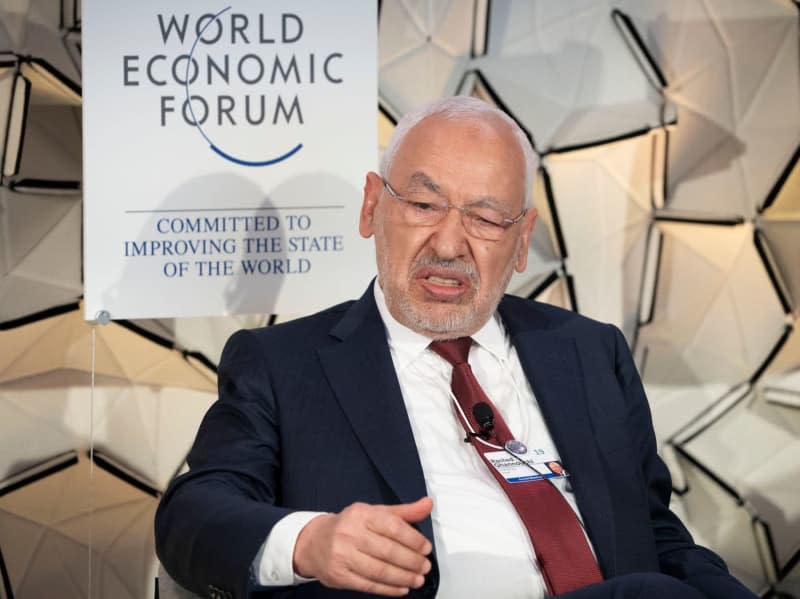Tunisian opposition leader Ghannouchi starts hunger strike in prison

- Oops!Something went wrong.Please try again later.
The head of Tunisia's opposition Islamist Ennahda movement, Rached Ghannouchi, began a hunger strike in prison to protest his detention along with other opposition figures, his lawyers said.
Ghannouchi, 82, joins six other opposition figures who began a hunger strike on February 12.
His defence team said in a statement on Monday that Ghannouchi urged Tunisians to push for "a free, democratic Tunisia".
"We hold the current authority responsible for the health of Rached Ghannouchi and all political prisoners who are on hunger strike," the team said.
Ghannouchi, a former head of Tunisia’s parliament and an outspoken critic of President Kais Saied, was arrested last year. He and other detainees have been facing charges of incitement against the state security and other corruption charges.
Since 2021, Saied has consolidated his power by dissolving the parliament that was dominated by Ennahda, steps that the opposition called a “coup.” These moves led to a new, significantly weakened representative body. Saied also held a constitutional referendum, which granted him wider powers.
The North African country has since been in political turmoil amid economic woes.

